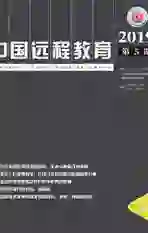英文摘要
2019-07-12
Chinese community education policies: evolution, text analysis and improvement suggestions
Guanghui Shen and Xiaowei Chen
Community education policies assure sustainable development of community education in terms of institutional regime and provision. Since 1988, Chinese community education policies have undergone three stages of change: initiation, exploration and development. This study sets out to conduct a text analysis of these policies in relation to their objectives, providing institutions, measures and procedures with the aim of identifying their development patterns and value orientation. Findings show that Chinese community education policies leave much to be desired in several areas, including provision sufficiency, implementation effectiveness and completeness of delivery network. It is also found that policy and system construction needs to be strengthened. Implications for the design and formulation of community education policies in the future are also discussed.
Keywords: community education; policy; evolution; text analysis; improvement strategy
Factors influencing student behavioral intention to use Corporate Operation Virtual Simulation Training System
Bing Yang, Liu Liu, Xiaogang Zhu and Tiong-Thye Goh
The current study constructs a 7-latent-variable model of factors influencing student behavioral intention to use a V-Learning-based virtual simulation training system. Fifteen variable-oriented hypotheses were formulated and a Likert-scale questionnaire was developed to measure 7 latent variables and 34 observable variables. 666 students from a university in Hubei Province participated in the study and 359 valid questionnaires were collected. The study used SPSS 22.0 to verify the reliability of the questionnaire and AMOS 24.0 to conduct Confirmatory Factor Analysis of the proposed model. Structural equation model analysis was also conducted to verify its reliability and stability. Findings from the study show that presence and perceived usefulness have a significant positive impact on student behavioral intention, hence confirming related hypotheses. Informed by the findings, suggestions are made on the construction of virtual simulation experiment and training centers in higher education.
Keywords: V-Learning; virtual simulation; TAM model; presence; self-efficacy; student behavioral intention; SEM analysis; experiment and practice teaching
Case-based instruction in the online learning environment: the effect of online discussion and its influencing factors
Heng Luo, Lan Zeng and Tingting Yang
Case discussion is considered as the key to successful case-based instruction (CBI) in that it enables knowledge construction through shared inquiry process. In the online learning environment, case discussion is held on the online discussion forum where the communication modes and discussant roles undergo profound changes, hence highlighting the need to further investigate its effects and influencing factors. To address this research gap, a quasi-experiment was conducted to examine the impact of online forum discussion on students learning performance and learning experience in online CBI. LASSO regression analysis was made to identify forum behaviors predictive of the effectiveness of online CBI. The results indicate that online forum discussion has a positive impact on case learning performance and that students learning experience is similar both in CBI and a traditional classroom. The number of case views and the total word count of forum posts are predictors of case learning performance. It is argued that the study results can extend the understanding of CBI in the online context, inform the design and implementation of online CBI, and further enhance the quality and learning experience of online CBI.
Keywords: case-based instruction; online discussion; learning performance; learning experience; LASSO regression; online learning behavior; problem space; experiment design
Middle school students use of ICT and its impact on their scientific literacy: a comparative study of China and Finland based on PISA data
Chunli Wang and Xiaoqing Gu
Program for International Student Assessment (PISA) has collected large amounts of data about students use of ICT, which allows the comparison between different educational systems and inform the development of ICT strategies accordingly. As a leader in all previous PISA tests, Finland is regarded as a representative of high quality education, hence becoming an important reference for international comparative research. Based on the latest data (PISA 2015), this study sets out to identify differences in students use of ICT between Finland and China and interpret the impact of ICT use on students scientific literacy. The results show that there are differences in ICT use between the two countries. Chinese students score is lower in most ICT variables than their Finnish counterparts. Furthermore, students in both countries can be classified into different cohorts in terms of ICT use, including ICT access, ICT perceptions, and ICT activities. Finally, when it comes to the impact of ICT use on scientific literacy, both countries share similarities in some aspects but differ in others. Implications from the study are also discussed in relation to improving Chinese middle school students' use of ICT.
Keywords: PISA; Information and Communication Technology (ICT); ICT in secondary education; scientific literacy; comparative study; China; Finland
Open and distance education in the UK in a digital age
Anne Gaskell
The UK has provided distance learning opportunities for students since 1858 when the University of London abolished residential requirements for learners. Over 100 years later in 1969, The Open University UK (OU UK) received its Royal Charter. This article traces the development of distance learning opportunities across the UK including the differing funding and Quality Assurance processes in the four constituent countries (England, Scotland, Wales and Northern Ireland). It also examines the early successes of distance learning as a mode of study and the current challenges faced by institutions, particularly the OU UK, by government funding for part-time students and arts subjects. Massive Open Online Courses (MOOCs) and other informal learning opportunities are also having an effect on traditional distance learning. The article concludes with a summary of some of the achievements of Open, Distance and eLearning study, including integration within the UKs Higher Education Sector and recognition of the Academic Quality of this mode of study.
Keywords: open, distance and eLearning (ODeL); Quality Assurance; University of London; Open University UK; Higher Education Funding
(英文目錄、摘要译者:肖俊洪)
